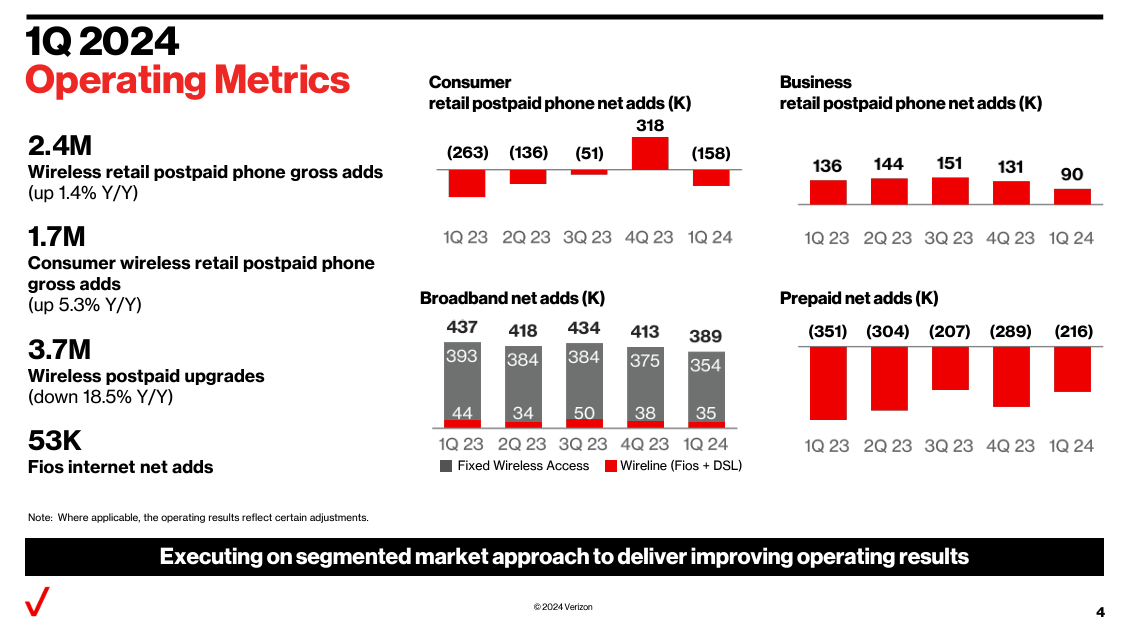How Verizon buckets its AI, genAI use cases
Verizon CEO Hans Vestberg is splitting the telecom giant's AI use cases in three buckets: Optimizing processes, product experiences and revenue growth.
Vestberg's thinking on AI, including generative AI, highlights how CEOs are maturing in their generative AI approaches. First, there was a wave of demand for shiny new objects. Then there was the wave of efficiency for AI use cases. And revenue growth is percolating as a goal but is far less developed so far.
Related: Middle managers and genAI | Why you'll need a chief AI officer | Enterprise generative AI use cases, applications about to surge | CEOs aim genAI at efficiency, automation, says Fortune/Deloitte survey | 77% of CxOs see competitive advantage from AI, says survey | Google Cloud Next: The role of genAI agents, enterprise use cases
Here's what Vestberg said on Verizon's first quarter earnings call:
"Our AI strategy focuses on three priorities. First, optimizing internal processes and operations through machine learning, such as creating efficiencies in fuel consumption. AI is already centered to our cost transformation program and will become even more important over time. Secondly, enhancing product experiences with AI capabilities like the personalized plan recommendation on myPlan, which is producing good early results. And thirdly, establishing an AI-based revenue stream by commercializing our network's unique low latency, high bandwidth, and robust mobile edge compute capabilities. Generative AI workloads represent a great long-term opportunity for us. As we expand our network and increase our performance advantage, we're also making Verizon a more efficient organization."
If you unpack those comments, Verizon is seeing tangible results across the spectrum. "We already had several generative AI projects going live," he said.
- Vestberg said Verizon has outsourced much of its customer service infrastructure without interruption, but also sees opportunities for AI to improve service.
- On the experience side, Vestberg said Verizon's myPlan effort, which offers consumers more customization options, is personalized with the help of AI.
- For efficiency results, AI has been in the mix for driving network performance but is used now for capacity deployment and power consumption. "We are using AI and generative AI already now commercially. So this is not the playing ground for us. We just see more opportunities," said Vestberg.
Naturally, Verizon also sees edge networks as well as private networks being a big driver of AI workloads. Vestberg said:
"On the flip side, of course we also see revenues. Our network was built for AI. That was my thought when I built Verizon Intelligent Edge Network five years ago or six years ago, that we're going to have compute and storage at the Edge. AI is sort of built for that with the low latency we have on the 5G network. And as we are deploying our 5G right now, with the mobile edge compute and AI, this is a great long-term opportunity for us using AI."


